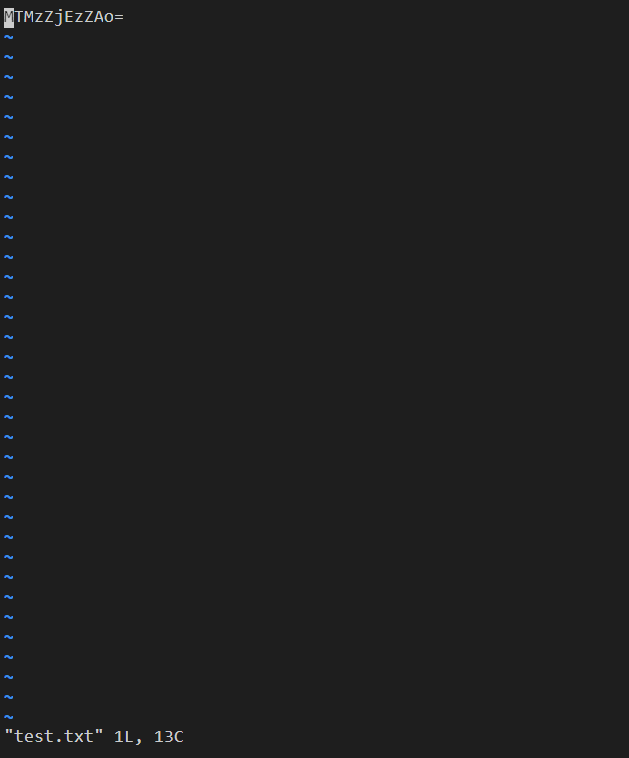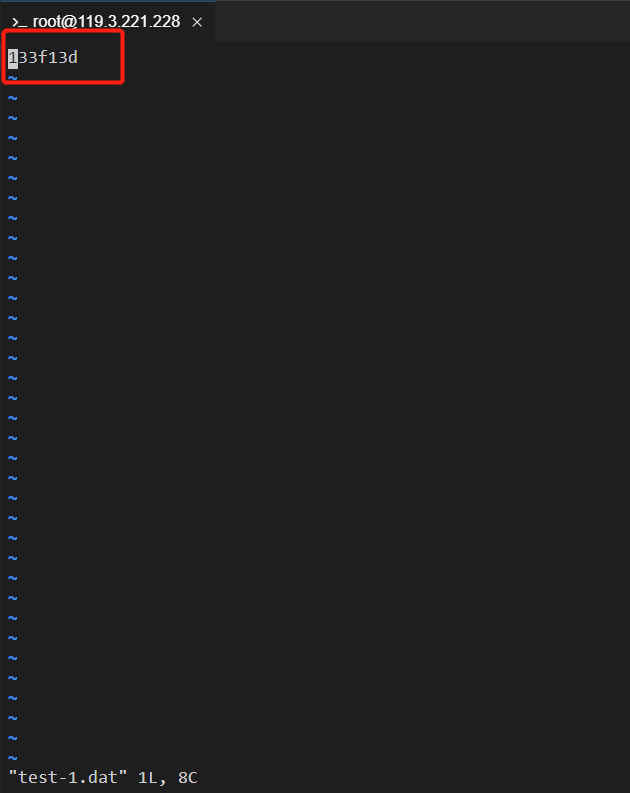OpenSSL测试-Base64
0. 在openEuler(推荐)或Ubuntu或Windows(不推荐)中完成下面任务 1. 使用工具(如bc,计算机器等)把自己学号转化为16进制,提交转化过程和结果截图(2‘) 2. 使用工具(如echo -e, ultraedit等)把上面转化的结果写入二进制文件“你的学号.dat”中,并用工具`od -tx1 你的学号.dat`,提交命令运行(3’) 3. 使用OpenSSL的base64命令对"你的学号.dat"进行编码解码,提交过程截图(5') 4. 使用OpenSSL编程对"你的学号.dat"进行编码解码,提交代码和运行结果截图。(10’)
本次测试我选择在Ubuntu中完成下面任务
1、使用工具(如bc,计算机器等)把自己学号转化为16进制,提交转化过程和结果截图
由此可以我学号的16进制为133F13D

2、使用工具(如echo -e, ultraedit等)把上面转化的结果写入二进制文件“你的学号.dat”中,并用工具od -tx1 你的学号.dat,提交命令运行

3、使用OpenSSL的base64命令对"你的学号.dat"进行编码解码,提交过程截图

4、使用OpenSSL编程对"你的学号.dat"进行编码解码,提交代码和运行结果截图。
代码:
#include <stdio.h>
#include <string.h>
#include <openssl/evp.h>
#include <openssl/x509.h>
//Base64编码
void tEVP_Encode()
{
EVP_ENCODE_CTX *ctx;
ctx = EVP_ENCODE_CTX_new(); //EVP编码结构体
unsigned char in[1024]; //输入数据缓冲区
int inl; //输入数据长度
char out[2048]={0}; //输出数据缓冲区
int outl; //输出数据长度
FILE *infp; //输入文件句柄
FILE *outfp; //输出文件句柄
infp = fopen("20181309.bat","rb");//打开待编码的文件
if(infp == NULL)
{
printf("Open File "20181309.bat" for Read Err.\n");
return;
}
outfp = fopen("test.txt","w");//打开编码后保存的文件
if(outfp == NULL)
{
printf("Open File "test.txt" For Write Err.\n");
return;
}
EVP_EncodeInit(ctx);//Base64编码初始化
printf("文件"20181309.bat" Base64编码后为:\n");
//循环读取原文,并调用EVP_EncodeUpdate计算Base64编码
while(1)
{
inl = fread(in,1,1024,infp);
if(inl <= 0)
break;
EVP_EncodeUpdate(ctx,out,&outl,in,inl);//编码
fwrite(out,1,outl,outfp);//输出编码结果到文件
printf("%s",out);
}
EVP_EncodeFinal(ctx,out,&outl);//完成编码,输出最后的数据。
fwrite(out,1,outl,outfp);
printf("%s",out);
fclose(infp);
fclose(outfp);
printf("对文件"20181309.bat" Base64编码完成,保存到"test.txt"文件.\n\n\n");
}
//Base64解码
void tEVP_Decode()
{
EVP_ENCODE_CTX *ctx;
ctx = EVP_ENCODE_CTX_new(); //EVP编码结构体
char in[1024]; //输入数据缓冲区
int inl; //输入数据长度
unsigned char out[1024]; //输出数据缓冲区
int outl; //输出数据长度
FILE *infp; //输入文件句柄
FILE *outfp; //输出文件句柄
infp = fopen("test.txt","r");//打开待解码的文件
if(infp == NULL)
{
printf("Open File "Test.txt" for Read Err.\n");
return;
}
outfp = fopen("test-1.dat","wb");//打开解码后保存的文件
if(outfp == NULL)
{
printf("Open File "test-1.txt" For Write Err.\n");
return;
}
EVP_DecodeInit(ctx);//Base64解码初始化
printf("开始对文件"Test.txt" Base64解码...\n\n");
//循环读取原文,并调用EVP_DecodeUpdate进行Base64解码
while(1)
{
inl = fread(in,1,1024,infp);
if(inl <= 0)
break;
EVP_DecodeUpdate(ctx,out,&outl,in,inl);//Base64解码
fwrite(out,1,outl,outfp);//输出到文件
}
EVP_DecodeFinal(ctx,out,&outl);//完成解码,输出最后的数据。
fwrite(out,1,outl,outfp);
fclose(infp);
fclose(outfp);
printf("对文件"Test.txt" Base64解码完成,保存为"test-1.dat"\n\n\n");
}
int main()
{
tEVP_Encode();
tEVP_Decode();
return 0;
}








 浙公网安备 33010602011771号
浙公网安备 33010602011771号